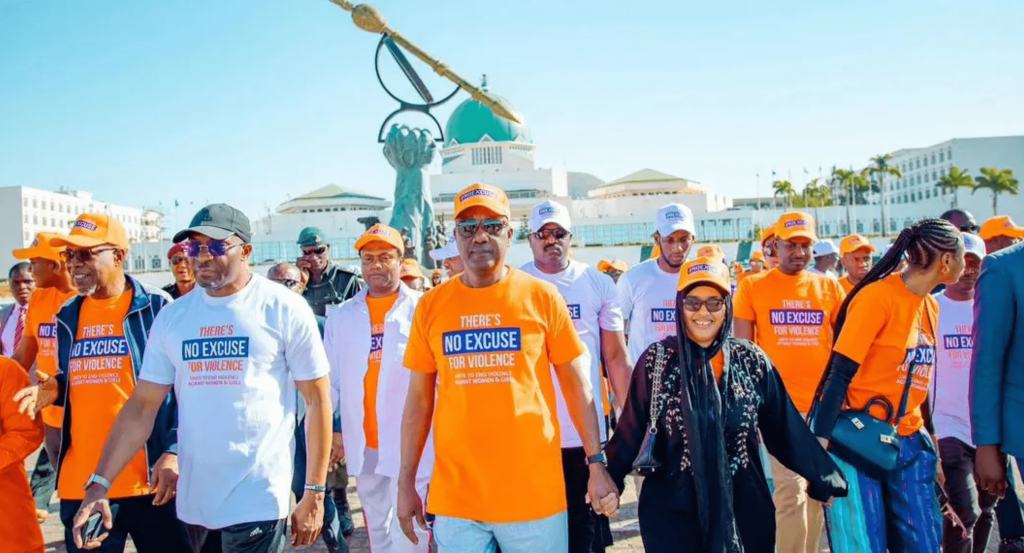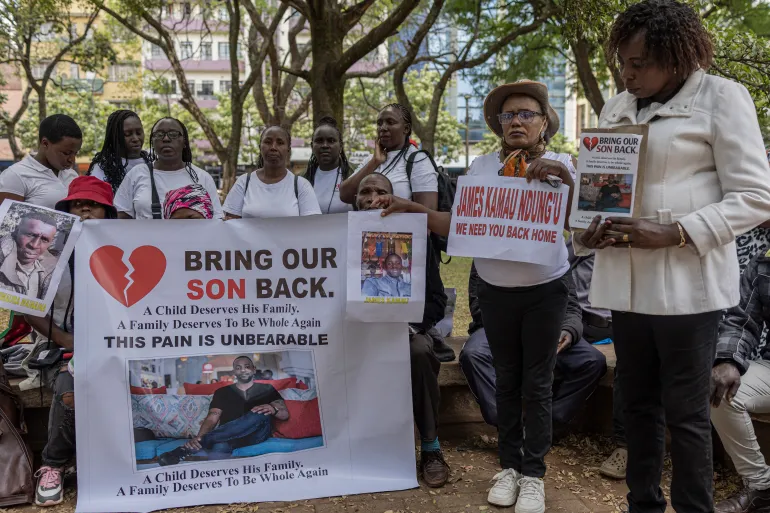Amid the global 16 Days of Activism Against Gender-Based Violence campaign, Nigeria’s spotlight on the issue has intensified, with stakeholders across various sectors calling for urgent measures to address the prevalence of abuse. According to the Minister of Women Affairs, Uju Kennedy-Ohanenye, 30% of Nigerian women have experienced gender-based violence (GBV), highlighting the urgency for systemic change.
On November 25, Vice President Kashim Shettima, First Lady Oluremi Tinubu, and Speaker of the House of Representatives Tajudeen Abbas joined the campaign, emphasizing the need for legislative, social, and community-driven actions. They collectively urged for stricter enforcement of existing laws and the introduction of new frameworks to safeguard women and girls across the country.
During a protest in Abuja, women and activists marched with placards bearing messages advocating zero tolerance for GBV. The demonstrators demanded accountability from the government, justice for survivors, and increased awareness to challenge cultural norms that perpetuate violence.
First Lady Oluremi Tinubu lent her voice to the cause, stating that gender-based violence is a critical barrier to Nigeria’s development. She highlighted the importance of the 16-day campaign as an opportunity to foster national dialogue and drive collective action. Tinubu also called for greater collaboration between the government, civil society, and international partners to eliminate all forms of violence against women.
In a related development, Nigerian lawmakers organized a march to demonstrate their commitment to combating GBV. Speaker Abbas reaffirmed the National Assembly’s pledge to strengthen existing laws, ensuring justice for survivors and penalties for offenders. He stressed that legislative interventions would be backed by budgetary allocations to enhance implementation.
Activists argue that while Nigeria has made progress in enacting laws like the Violence Against Persons (Prohibition) Act, implementation remains inconsistent. They emphasized the importance of grassroots education, community engagement, and media advocacy in changing harmful societal norms.
The Women Affairs Minister underscored that economic empowerment for women is critical to reducing vulnerability. “When women have financial independence, they are less likely to remain in abusive situations,” Kennedy-Ohanenye stated.
As the 16 Days of Activism continues, there is renewed hope that the campaign will serve as a catalyst for tangible progress in combating GBV in Nigeria. With sustained efforts from all sectors, stakeholders aim to create a society where women and girls can live free from fear and violence.























